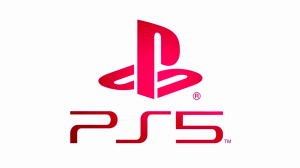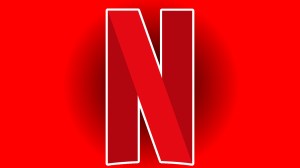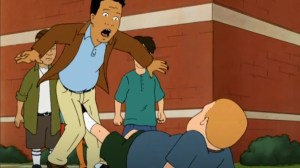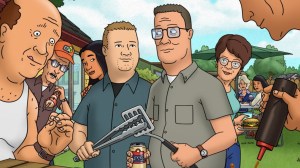The original Jacob’s Ladder, starring Tim Robbins, focused on a veteran who begins to experience a series of supernatural horrors, with his time in the Vietnam War leading him to question his reality. The film’s final reveal is often regarded in the horror community to be one of the most unexpected twists in the genre, as it completely recontextualizes the ordeal we just watched unfold. With it being nearly 30 years since the original film’s debut, this year’s reboot had to make some major tweaks to the narrative to offer audiences a believable experience, forcing star Michael Ealy to embrace an emotionally draining role.
Videos by ComicBook.com
In the new film, Jacob Singer is getting his life back together after his brother is killed in Afghanistan. Jacob has a beautiful wife, a newborn child and a successful career as a surgeon in a VA hospital. When a stranger approaches Jacob and reveals that his brother is actually alive and living in an underground shelter with other homeless vets, Jacob’s life starts to unravel. He begins hallucinating, believes he is being followed by violent attackers and becomes paranoid about the truth of what really happened to his brother. When he discovers that his brother is alive and addicted to an experimental drug, he uncovers a secret he never could have been prepared for.
ComicBook.com recently caught up with Ealy to discuss his connection to the original film, how he prepared for the role, and the resulting ramifications of such a mind-bending narrative.

ComicBook.com: Is the original movie something that you had much connection to or are you a horror fan in general?
Michael Ealy: No. I remember watching the original and not understanding it because I was 17 or 18 years old when it came out, so I didn’t quite get it. And when the opportunity came to watch it again, I operated from the reboot script, for the most part. I didn’t watch the original until after we made this one because I didn’t want to put myself in a position to recreate it frame by frame. This is a different story.
Here’s where it gets really interesting. I didn’t like the original the first time I saw it after we filmed this version. I didn’t like it. I thought he cheated at the end, like I thought the filmmaker just cheated. I went back and read some of the reviews and there were a lot of people that agreed with me back in the ’90s. It came out to mixed reviews.
So then I watched it again like a month later. I guess really good movies, you’ve got to watch more than once. And I realized just how brilliant the film was and so, for me, I think the movie doesn’t hold up technology-wise and in terms of special effects. But it is a very creepy, trippy movie. It’s a total mind fuck. And that’s what we tried to recreate and I think, at the end of the day, there’s a generation of people who have never even heard of the original and will be able to watch this one.
The original film is definitely a complex and difficult watch, especially after the reveal in the finale. Some fans have a much better memory of that film’s finale more than anything else in the film. Interestingly, given how much weight the original’s twist has on its legacy, while watching the remake, you find yourself expecting a major twist that never really appears.
Talking to the director, David Rosenthal, we talked about how we have a big reveal, but it’s not the end of the original Jacob’s Ladder. The end of the original was like, “Oh, really? So all of that was just…” And so it hits you literally in the last minute of the film.
And with this one, there is a reveal, but there’s more to the story at that point. I think, for us, it was important to ground the story a little bit so that it felt more real. I think we’re living in a time, despite all of the comic book movies, we’re living in a time right now where people want something that’s tangible, something that could happen to them. And so I feel like we were able to ground it a little bit, compared to the original, which, for some people, won’t be amazing. And for others, it will be.
The original film came out in the wake of slashers like Jason Voorhees and Freddy Krueger dominating the horror world, allowing it to feel like a breath of fresh air, so this remake offering a more grounded experience than a comic book movie is another way it spiritually falls in line with the source material.
Thank you. I appreciate that because it’s so nice to talk to somebody who got it.
We definitely wanted to pay homage to the original and I think there are moments in which we do that, but we wanted the movie to stand out on its own. There was talk about changing the title because it does stand out on its own, but the talk about changing the title came after and it was like, “Guys, we shot Jacob’s Ladder. We have to roll with this and just embrace the fact that it’s a new version. It’s a retelling of that story.”
The thing that sits with me is yes, there’s a horror component to this film, for sure. But this one feels more gut-wrenching, to me. I remember seeing it with my team months ago and afterwards, people felt like, “Wow, that was…whoa.” They were just spent. They felt spent because we’re so used to happy endings and things of that nature now. To a certain extent, the ending of the original was a happy ending.
Well, maybe not a happy ending, but a relief that some of the things that happened in the original weren’t exactly “real.”
Once it’s over, you’re like, “Oh okay,” but that’s still kind of a happy ending. This one? Nope. It’s relentless. It’s gut-wrenching. And I feel like when David and I talked about putting this on the screen, we wanted it to be clear that we’re not trying to make this conventional in that way, we don’t want it to be conventional in that way. You should leave this movie wondering what just happened and, at the same time, feeling spent because it is a mind fuck.
You spent a lot of the film confused and overwhelmed, with virtually every scene requiring you to be frantic. How did this experience compare to something more physically demanding, like The Intruder?
The tone of The Intruder is a little bit lighter, even though it’s terrifying. It’s a little bit lighter. You feel like you have an option in The intruder. You feel like there’s an option there.
I think with Jacob’s Ladder, if we did our jobs, you fall into this world with Jacob and it just won’t let you go. Just like it won’t let Jacob go. For me, this was, I would say, top three shooting experiences, in terms of making a movie. And I think because we did it independently, we really had the freedom to take risks. And for me, I had the utmost support from our crew and the director and the producers to go wherever I needed to go.
And it was the most draining project I’ve ever done. I have never finished a movie and felt like I did at the end of this one. I could not have been more exhausted mentally, physically, and emotionally. I typically go away after every movie, but this one was like, I just told my wife, “I’ll see you when I see you. I don’t know how long I’m going to be gone. I just need however long it takes.”
It was so intense, almost daily. And I remember thinking, “God, I don’t want this to be my life.” I really grew an appreciation for how easy my life is after playing Jacob.
The original film depicted the after-effects of Agent Orange on veterans, which audiences in 1990 were familiar with and audiences in 2019 aren’t as aware of. Instead, this film focuses on more recent post-traumatic stress disorders suffered by veterans. How did you prepare for those depictions?
As an executive producer on this, it was another opportunity to have a real strong say in what’s happening. And I had extensive conversations with the producers and the financiers about how important it was to explore this issue of PTSD.
Because, in a lot of ways, the original was about that and, you’re right, in the ’90s, people were much more in touch with what happened in Vietnam. This movie is an example of where we are now with war, meaning we could be at war and people aren’t even thinking about it because they’re watching The Bachelorette or American idol. We have so many other distractions from the fighting that exists in other countries.
The toll that it’s taking on the soldiers, you watch a movie like American Sniper, which contemporizes the effects of war, the way that Full Metal Jacket did when that movie was released. We almost don’t even make that many movies about war anymore because we’re living vicariously through superheroes right now.
This was an opportunity to do something grounded and I had already done research, from another movie that I did, on PTSD and how it happens and secondary PTSD and how it affects the family. And I had seen all these interviews and I just went through all of that all over again for Jacob’s Ladder to try to reconnect with that.
There’s also a Tuskegee Airmen component to this one, in terms of understanding that you don’t put it past the government to run experiments on people that are in need. Ironically, people that served the government are now being Guinea pigs for the government. There’s a theme there.
And again, without being too preachy, I feel like we were able to accomplish all of that with Jacob’s Ladder, as opposed to just doing a documentary about it. Doing it in a narrative format, I feel like we made it very important that we wanted to try and accomplish this from the beginning.
There was one other thing I wanted to bring up, and this was something that came to me right before we started shooting this, there was a time years ago when I was doing these readings of Greek tragedies. And the Greek tragedies, what people didn’t understand back then was people during these wars were suffering from PTSD. They refer to it as “the madness.”
When I was doing these readings, I was going around to different military installments throughout the country with people like Adam Driver and Lili Taylor, and we were doing these readings at military bases and the military families would come and hear this piece that was written centuries ago and feel a connection because they can see themselves in these Greek tragedies, whether they were the husband or the wife or the mother or the father. They could see themselves in these Greek tragedies. And you realize that this PTSD has been with us for centuries, that we just recently label “PTSD.”
*****
Jacob’s Ladder hits Video On Demand and select theaters on August 23rd.









